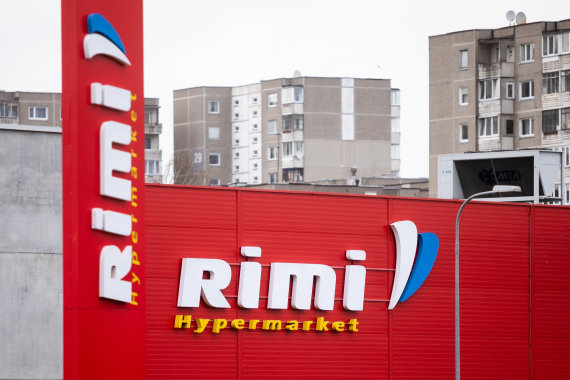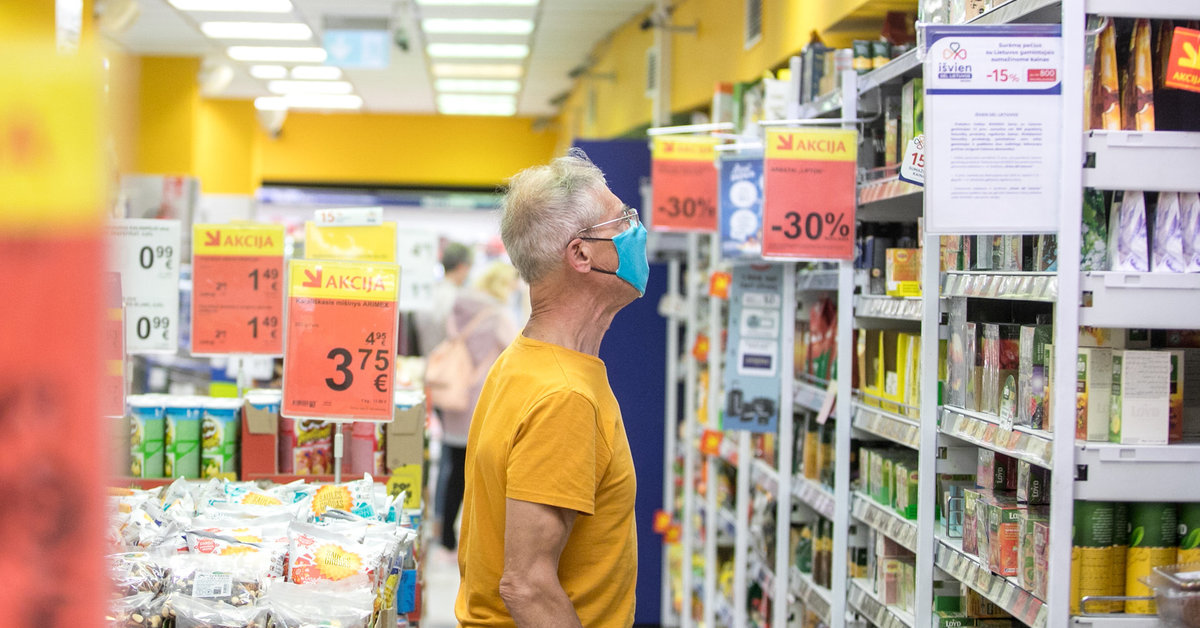Such a requirement will take effect on Friday, September 22, and will apply to those outlets that are exempted by government decree and allowed to serve people who do not meet the eligibility passport criteria.
According to the Ministry of Health, such persons may be served by shops and marketplaces whose main activity is the sale of food, veterinary, animal feed, medicines, optical goods and orthopedic technical equipment, plants, seeds, fertilizers, provided that the place of sale has a separate entrance and its area does not exceed 1500 square meters. m or the store is located in a shopping center with an area not exceeding 1,500 square meters. m.
Camelia: Part of the population will be left without drugs
After contacting one of the pharmacy chains, his representatives said it was hard to believe that the restriction would apply to pharmacies as well, but a spokesman for the press service of the Ministry of Health, Julian Gališanski, confirmed that the exemption would not apply to pharmacies.
Aušra Budrikienė, General Manager of Nemuno vaistinė, which currently manages the Camelia pharmacy network 15min explained that according to the current requirements, the area of the office (that is, the pharmacy room where medicines and other products of the pharmacy range are sold or dispensed to the population) must be at least 25 sq. m. m in the city and not less than 10 sq. km. m in a rural area.
Aušra Budrikienė
–
According to her, Camelia pharmacies, which are not in supermarkets, ie have separate entrances from the outside and which have hitherto been accessible without a passport, are usually no larger than 25 sq. M. m, and pharmacies in rural areas are 10-15 sq. m. m area.
“Because, according to the latest decision made by the operations manager, 30 sq. M. m area, and our pharmacies are smaller, without the possibility of a passport to receive patients we will not be able to. Larger than 30 sq. M. m pharmacies are located in supermarkets, which patients recently and so could not enter without the possibility of a passport. It turns out that residents who do not have the opportunity to have a passport will not be able to enter pharmacies to receive pharmaceutical services or buy medicines at all, ”A. Budrikienė was surprised.
We believe that pharmacies must be exempted in the latest ruling, otherwise part of the population will be left without medicines and other goods that are important to them.
According to the interlocutor, this will be a particularly big problem in smaller cities and towns where there are no pharmacies with an area larger than 30 sq. M. m
She reminded that during the winter, 10-15 sq. M. m of retail space and such a decision was logical.
“We believe that the latest resolution must apply an exception to pharmacies, otherwise part of the population will be left without medicines and other goods important to them,” said A. Budrikienė.
Head of the Pharmacy Association: The queues at doctors will increase
Kristina Nemaniūtė-Gagė, Chairwoman of the Lithuanian Pharmacy Association, claimed that the situation was worrying. She emphasized that medicines prescribed by specialists are necessary for people and should not simply be discontinued or delayed.
“The use of certain medicines is vital and their use cannot be postponed or interrupted for more than a day. There are also cases when medicines are needed for first aid, pain reduction and so on, ”said K. Nemaniūtė-Gagė.
She noted that part of the population had not previously been able to access larger pharmacies without a passport option, and now access to smaller pharmacies will still be restricted.

Photo by Vidmantas Balkūnas / 15min photo / Kristina Nemaniūtė – Gagė 15min in the studio
–
“Given that the area of many pharmacies is not really large, a situation will arise where the pharmacy will be able to have only one person and form a large queue in the field. It is worrying that residents will decide not to freeze outside, not stand in line and stop medical treatment, in which case we will not go to pandemic management, but on the contrary, we will increase the queues for doctors even more, and in extreme cases more patients may have to be hospitalized, ”K. Nemaniūtė -Gagé.
Therefore, according to her, pharmacies must be subject to exceptions, all residents of Lithuania must be served here and the area must not be limited either. It is also necessary to find a solution for delivering prescription drugs to patients at home.
“Today in Lithuania it is not yet possible to buy prescription drugs remotely, if you are in self-isolation, if you have a disability, are sick, and now, if you no longer have access to a pharmacy or just do not want to stand in line, you cannot order prescription drugs at home,” .Nemaniute-Gage.
Retail chains will adapt
Traders were more moderate in their assessment of the change, although 15min knowledge, they are not satisfied that decisions are taken urgently and without discussion.
Ernesta Dapkienė, Director of Maxima’s Communication and Image Department 15min said that as before, the network will comply with all government instructions for pandemic management.

Erik Ovcharenko / 15min photo / Quarantine morning in Raseiniai
–
According to her, currently in stores with the opportunity passport per buyer per 16 sq. Km. m., and where all buyers are admitted – only 7 sq. m. m.
“In our opinion, during a pandemic, it is the regulation of flows, and not the passport of opportunities, combined with the mandatory wearing of masks, could ensure a more even distribution and control of customer flows in stores. Such a procedure would be fairer in terms of competition as well, ”the network representative is convinced.
Vaida Budrienė, the communication manager of the Iki retail chain, also emphasized that the network would follow the instructions and that it supported the Government’s desire to quell the pandemic as soon as possible.
“This newly adopted procedure means that we are basically returning to the quarantine requirements. As then, we will now regulate customer flows with baskets. Of course, this will require additional resources, as we will have to allocate a person who will monitor the number of our customers in the store, ”V. Budrienė pointed out.

Photo from personal archive / Vaida Budrienė, Iki Communication Manager
–
Gabrielė Šerėnienė, Communications Manager of Rimi retail chain, also agreed that the regulation of customer flows is a logical measure that allows to ensure the area for one person so that it remains as safe as possible during shopping.
She claimed that the imposition of the duty on September 13 in larger than 1,500 square meters. meters in stores to check immunization documents, the flow of buyers online redistributed. 19 percent buyers chose to shop in other places than Rimi. The flow of customers in small stores increased slightly, but did not compensate for losses in large stores.
“The redistribution of the flow of customers between stores of different sizes, retail chains and other outlets has created a strange situation: where the space is mostly – the flow of people is small, where there was no space – they visit more,” said the network spokeswoman.

Photo by Sigismund Gedvila / 15min / Rimimi
–
Retail chains have not yet assessed how the new restriction will affect turnover in smaller stores. According to G.Šerėnienė, it is difficult to predict how buyers will behave.
And V.Budrienė considered that it is possible that people will go to the store less often, but will buy more. This was the case during the first and second quarantines.
Both E. Dapkienė and Norfos mažmena representative Darius Ryliškis said that the impact on turnover could be assessed later when the decision enters into force.
– .


